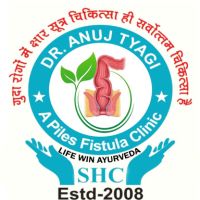
List of Foods to Avoid in Piles, PilesFistulaClinic Guide
Piles, also known as hemorrhoids, can cause discomfort, pain, and embarrassment for many individuals. This common condition arises when the veins in the rectal area become swollen, leading to a variety of symptoms, including bleeding, itching, and discomfort during bowel movements.
While medical treatments like kshar sutra treatment in Ghaziabad can provide effective relief, dietary choices play a crucial role in managing and alleviating the symptoms of piles.
Understanding the foods to avoid in piles is essential for those seeking relief and wishing to prevent exacerbation of their condition.
In this blog, we will discuss the foods that individuals with piles should avoid, how these foods can aggravate symptoms, and how the Piles Fistula Clinic in Ghaziabad can assist you in your journey toward better health.
Understanding Piles
Before we delve into the dietary aspects, it is important to understand what piles are. Piles can be classified into two types:
- Internal Piles: These occur inside the rectum and are generally not visible. They may cause bleeding during bowel movements but are usually painless.
- External Piles: These are located under the skin around the anus and can cause discomfort, itching, and pain. They are often more visible and can lead to more significant discomfort.
Several factors contribute to the development of piles, including genetics, prolonged sitting, obesity, and a low-fiber diet. However, one of the most impactful factors is diet, specifically what foods you consume or avoid.
Foods to Avoid in Piles
- Spicy Foods
Spicy foods can irritate the digestive tract and exacerbate the symptoms of piles. Ingredients like chili peppers and hot spices can lead to increased discomfort during bowel movements.
To reduce inflammation and irritation, it is advisable to steer clear of these foods for individuals suffering from piles.
- Processed Foods
Processed foods, including fast food and packaged snacks, are often low in fiber and high in unhealthy fats, salt, and sugar. These foods can lead to constipation, a significant contributor to piles. Avoiding processed foods can help maintain regular bowel movements and reduce strain during defecation.
- Red Meat
Red meat is difficult to digest and can lead to constipation. It also contains less fiber than plant-based proteins. Instead of red meat, opt for lean sources of protein like chicken, fish, or plant-based proteins such as legumes and beans. Reducing red meat intake can greatly help manage piles.
- Dairy Products
For some individuals, dairy products can be a source of constipation. Foods like cheese, ice cream, and full-fat milk may not be well tolerated and can aggravate piles symptoms. If you suspect dairy might be affecting you, consider reducing or eliminating it from your diet.
- Caffeinated Beverages
Caffeine is a known diuretic, which means it can lead to dehydration. Dehydration can result in harder stools, making bowel movements painful. Limiting or avoiding caffeine from sources like coffee, tea, and certain sodas can help maintain adequate hydration and regularity.
- Alcohol
Similar to caffeine, alcohol can lead to dehydration and contribute to constipation. Additionally, it can irritate the gastrointestinal tract. Avoiding alcohol is advisable for individuals with piles, especially during flare-ups.
- Refined Carbohydrates
Refined carbohydrates, such as white bread, pastries, and sugary snacks, lack fiber and can lead to constipation. Opting for whole grains instead can promote better digestion and prevent straining during bowel movements.
- Fried Foods
Fried foods are high in unhealthy fats and low in fiber, contributing to digestive issues. They can also irritate the gastrointestinal tract, leading to increased discomfort for individuals suffering from piles. It is best to avoid fried foods and choose healthier cooking methods like steaming or grilling.
- Certain Fruits and Vegetables
While most fruits and vegetables are beneficial due to their fiber content, some can have adverse effects for those with piles.
For example, bananas can cause constipation for some people. It is essential to monitor your body’s reactions to specific fruits and vegetables and avoid those that exacerbate your symptoms.
How Kshar Sutra Treatment in Ghaziabad Can Help
While dietary changes are essential for managing piles, more is needed for everyone. At Piles Fistula Clinic in Ghaziabad, we offer kshar sutra treatment, a specialized Ayurvedic procedure for managing piles and related conditions.
This treatment involves the use of a medicated thread that is placed around the pile mass, gradually cutting off the blood supply and leading to the natural shedding of the piles.
Benefits of Kshar Sutra Treatment
- Minimally Invasive: The kshar sutra treatment in Ghaziabad is a minimally invasive procedure that can be performed on an outpatient basis, allowing for a quicker recovery.
- Effective Results: Many patients experience significant relief from their symptoms after undergoing this treatment, reducing the need for surgical interventions.
- Holistic Approach: Kshar sutra treatment not only addresses the piles but also focuses on overall well-being, including dietary guidance and lifestyle modifications.
Additional Tips for Managing Piles
In addition to avoiding certain foods, here are some additional tips to help manage piles:
- Increase Fiber Intake: Include high-fiber foods in your diet, such as whole grains, fruits, and vegetables. Fiber can soften stools and promote regular bowel movements, reducing the risk of constipation.
- Stay Hydrated: Drink plenty of water throughout the day. Staying hydrated helps keep stools soft and makes bowel movements easier.
- Practice Good Toilet Habits: Avoid straining during bowel movements and try not to sit on the toilet for extended periods. It can prevent additional pressure on the rectal veins.
- Regular Exercise: Engage in regular physical activity to promote healthy digestion and avoid obesity, which is a risk factor for piles.
- Consult a Specialist: If you are suffering from piles, it is essential to consult a healthcare professional. The team at Piles Fistula Clinic in Ghaziabad can provide personalized recommendations and treatments tailored to your specific needs.
If you or someone you know is struggling with piles, do not hesitate to reach out for help. At Piles Clinic in Ghaziabad, we understand the discomfort and challenges associated with this condition. Our team of specialists is dedicated to providing effective solutions, including kshar sutra treatment in Ghaziabad, to help you find relief.
Contact us today to schedule a consultation! Let us guide you on your journey to recovery and improved well-being. Visit our website or call us at +91-8595786909 for more information on our services and how we can help you manage your piles effectively.
